


The IDF in an Ever-Evolving Reality: The IDI Annual Conference on Security and Democracy
IDI's annual conference on National Security and Democracy opened with a focus on the question of whether the current IDF model of service is sustainable, what other models should be considered and included a session on public attitudes towards the IDF. The conference is held in partnership with the Konrad Adenauer Stiftung.

Metaverse Has Same, if not Worse, Issues as Facebook Did
Written By: Dr. Tehilla Shwartz Altshuler, Brigadier General (res.) Itai Brun
Everyone’s talking about “META,” Facebook’s new name, and the thrilling future world of virtual and augmented reality in which we will communicate, shop, play, and even work. Are we entering a new chapter of the internet’s history, in which we will merge with events and don’t just watch them on screen? Mark Zuckerberg thinks so, as he wrote: “The defining quality of the metaverse is presence, which is this feeling that you're really there with another person or in another place.”

Term Limits for Israel's Prime Minister?
Written By: Dr. Assaf Shapira, Dr. Amir Fuchs
The recently proposed bill would limit the tenure of the Prime Minister in Israel to eight years (continuous or cumulative). At the end of that time, the Government would be considered to have resigned and its head would no longer be eligible to serve as Prime Minister. This limitation would apply only to tenure after the date of the law’s passage.

Two Wrongs Don’t Make a Right
Written By: Prof. Amichai Cohen, Prof. Yuval Shany
Even if we accept the argument that lowering the exemption age exacerbates existing discrimination, we should still assess the proportionality of this harm. Basic rights such as equality are not absolute, and are sometimes subject to restrictions in the face of a pressing public interest.

Kotel Compromise Must Be Honored
Written By: Yohanan Plesner , Adv. Shlomit Ravitsky Tur-Paz
The friction and hostility we witnessed today at one of Judaism's holiest sites is unacceptable and could have been avoided if the previously agreed upon 'Western Wall Compromise' had been honored.
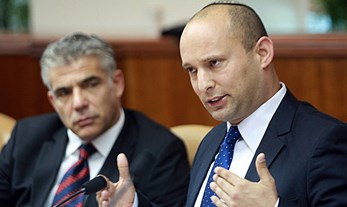
Israel's International Standing Has Remained Stable Under the New Government
Written By: Prof. Tamar Hermann, Dr. Or Anabi
Most Israelis think that their country's international standing has either remained the same as it was under former Prime Minister Benjamin Netanyahu (37%) or improved (28%) since Prime Minster Naftali Bennett and Foreign Minister Yair Lapid assumed office.

Passing the Budget and the Dispersal of the Knesset
Written By: Dr. Assaf Shapira
To date, the Knesset was dissolved only once due to failure to pass a budget. On December 23, 2020: the 23rd Knesset was dissolved after it did not approve the budget. Originally, the law mandated that the government approve the budget by August 2020, but as part of what was termed the "Hauser compromise" the law was amended, and the date was postponed to December of that year.

Everything You Wanted to Know about the Law of Fundamentals of Regulation
Written By: Adv. Edna Harel Fisher, Daphna Aviram-Nitzan
In Israel, there are frequent complaints about over-regulation, burdensome bureaucracy and inefficient law. On the other hand, many acknowledge that there are areas where regulations are lacking or out of date. IDI experts weigh in and explains the proposed new law that are set to reform Israel's regulatory framework.

The Labor Market must be Fixed for the Economy to Improve
Written By: Daphna Aviram-Nitzan
Addressing the shortage of hi-tech workers isn't enough. Israel must focus on vocational training & improving productivity in all industries to continue economic growth - economist Daphna Aviram Nitzan explains

The Climate Crisis: An Opportunity
Written By: Yohanan Plesner
Israel is small, crowded, and polluted. If we fail to act, we will see more and more damage to the country, especially to our most vulnerable populations

Israel 2050: Global Warming - Israelis Concerned - Survey Part I & II
Written By: Daphna Aviram-Nitzan, Hila Shoef Kollwitz
As part of IDI's 'Israel 2050' initiative, a survey found that the majority of Israelis are concerned about the risks of global warming and believe that their government should act accordingly.

A Just Transition to a Low Carbon Economy
Written By: Prof. Nathan Sussman, Daphna Aviram-Nitzan, Hila Shoef Kollwitz
Implementing IDI's Israel 2050 program for emissions reduction is not only an urgent necessity, but also highly beneficial in economic terms.

Israel 2050: A Thriving Economy in a Sustainable Environment The Program’s Impact on Macroeconomic Growth in Israel
Written By: Prof. Nathan Sussman, Ruslana Rachel Palatnik, Ayelet Davidovitch, Hila Shoef Kollwitz

Can a Criminal Defendant be Banned From Forming a Government?
Written By: Dr. Dana Blander
Minister Gideon Saar's proposed bill preventing a criminal defendant from forming a government is unprecedented, but so is the reality in Israel.
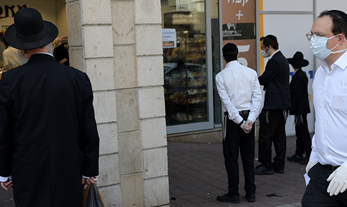
The Financial Situation of Ultra-Orthodox Households Before and After the COVID-19 Crisis
Written By: Amit Leventhal, Gabriel Gordon, Dr. Gilad Malach
What are the ramifications of recent developments, and especially of the COVID-19 pandemic, for the economic resilience of ultra-Orthodox households in Israel?

Facebook is toxic in Hebrew too — Israelis must be protected
Written By: Dr. Tehilla Shwartz Altshuler
It's up to lawmakers to enact privacy protection, outlaw predatory marketing and hold social media providers in Israel accountable for the harm they do

Stabilizing the Economy and Combatting COVID by Imposing Restrictions
Written By: Prof. Tamar Hermann, Dr. Or Anabi
After more than 100 days in office – Israelis want the new government to prioritize stabilizing the economy and combatting COVID by imposing restrictions on the unvaccinated
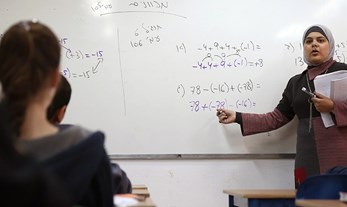
Fighting Crime Through Education in the Arab Sector
Written By: Prof. Ismael Abu-Saad
Arabs ostensibly are present, but in reality are absent from the highest levels of the ministry, where decisions are made.

One Arab Justice Isn’t Enough
Written By: Dr. Guy Lurie
The imminent retirement of Judge Kara will leave the Supreme Court without an Arab justice, yet there is only one Arab candidate on the list of possible replacements. We must move beyond filling the "Arab chair" and ensure proportional representation of Arabs as well as women and Mizrahim in the courts

FDA Booster Decision Disappoints all Sides
Written By: Dr. Tehilla Shwartz Altshuler, Brigadier General (res.) Itai Brun
The FDA ruling regarding the Pfizer booster shot may have not been completely in-line with the Health Ministry's recommendation, but the open and transparent decision-making processes employed by the American agency holds important lessons for Israel
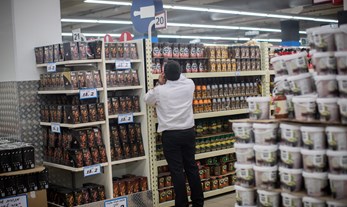
Duplicate Kashrut Certifications and Excess Costs to Suppliers and Consumers
Written By: Dr. Ariel Finkelstein, Gabriel Abensour
88% of the products sold in supermarkets in Israel have duplicate kashrut certifications resulting in excess costs to both suppliers and consumers. Analysis by IDI experts Finkelstein and Abensour reveals why reform is overdue

Israel Must Codify Equality
Written By: Dr. Amir Fuchs
Equality should be enshrined in a broad Basic Law that defines Israel as a democratic state - to create the proper balance between the Jewish and democratic components of Israel's identity, a balance that was upset by the Nation-State Law

Days of Judgement Ahead for the New Government
Written By: Yohanan Plesner
Let us wish the people of Israel, the government of Israel, and its leaders a Shana Tova, a good new year, and one in which we are able to meet the coming challenges and tests with success.

Americans Split on Military Aid to Israel, Say Political Status Quo Unacceptable
Written By: Dina Smeltz, Senior Fellow for Public Opinion and Foreign Policy, Emily Sullivan, Research Assistant, Prof. Tamar Hermann
Both the US and Israel enter new eras of leadership - how does the public view the future of US-Israel relations against the background of the the conflict with the Palestinians
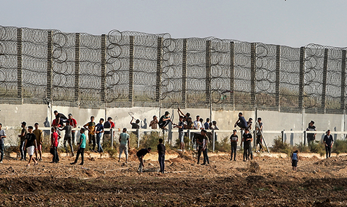
The Silence of the Commanders
Written By: Dr. Idit Shafran Gittleman
False quick-spreading claims blamed an IDF soldier's death on overly stringent rules of engagement. What took the military so long to set the record straight?

President Reuven Rivlin Joins IDI as Honorary Chair
Israel's tenth President to focus on bridging gaps and strengthening democratic values

Ahead of the Jewish New Year - National Mood Pessimistic
Written By: Prof. Tamar Hermann, Dr. Or Anabi
Ahead of the Jewish New Year, 60% of Israelis define the national mood as "pessimistic." 52% of Jewish Israelis may skip their holiday meals if they include unvaccinated guests.

The Sins of the Digital Era
Written By: Dr. Tehilla Shwartz Altshuler
Social media narrows our range of information by spreading misinformation.

Religiously Democratic?
Written By: Prof. Daniel Statman
Prof. Daniel Statman discusses his new co-authored book State and Religion is Israel, a joint legal and philosophical attempt to conceptualize the role of religion in democratic regimes.


